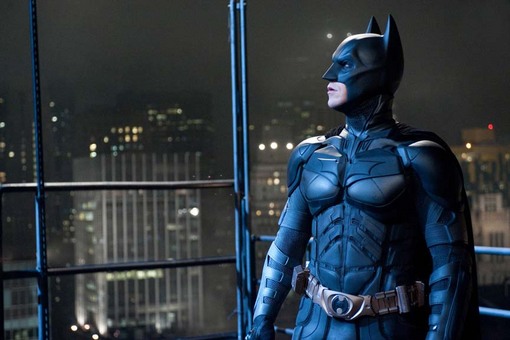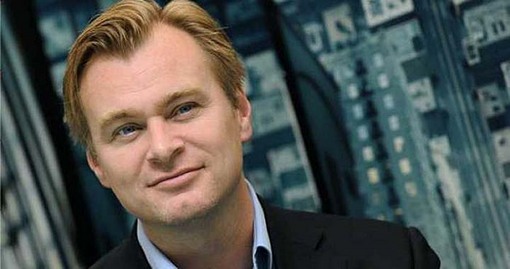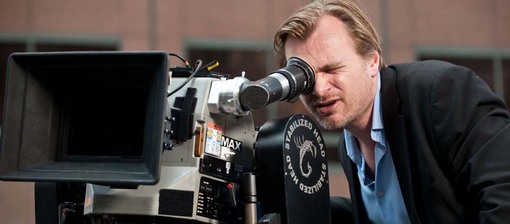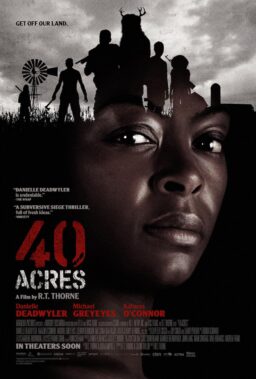“If you think this movie is mediocre, why have you written so much about it?” That’s a comment I sometimes get — and although I understand where it’s coming from, I don’t think it makes sense if you stop to think about it for two seconds. I usually respond by saying that I don’t see any contradiction there at all. Who hasn’t encountered a movie that, afterwards, is more interesting to talk about than it was to actually sit through? Who would argue that the only movies worth analyzing and arguing about are those you think are successful? When I was 18, one of my college film professors told us something I’ve never forgotten — that you can often learn as much (or more) about film from a bad movie as you can from a good one.
Ignatiy Vishnevetsky raises this same issue in a round-table conversation on “The Dark Knight Rises” at MUBI.com that takes a course similar to the ones we’ve been having here at Scanners:
… I’d be lying if I said that I don’t derive pleasure from trying to crack it and figure out what exactly makes it frustrating or dull. You gotta give credit where credit is due: even when Nolan makes a mediocre film… it’s at least fun to talk about. You can’t say that about many filmmakers — but, then again, it would be even better if the movie was as fun to watch as it is to discuss.
My feelings precisely. One more thing, though, before I get back to this MUBI confab, and that’s the matter of tone and attribution of motive — not to the movie or the characters in it, but to those who take part in the discussion. First, as I said previously, I have nothing worth adding to what’s already been written about the shootings in Aurora, CO — and I’ve avoided reading most of it because, as Dave Cullen wrote in last Sunday’s New York Times, almost everything we think we know about the killer and even the circumstances of the incident itself, is wrong.
What exasperates me are pundits like David “False Dichotomy” Brooks, who exploits the atrocity to frame a gun control discussion this way:
All this is not to say that gun control laws are definitely ineffective. Lack of evidence of effectiveness is not the same thing as evidence of ineffectiveness. Moreover, there have been some studies that do indicate that the laws work. For example, after the shooting in Tucson last year, Richard Florida posted a study suggesting that, overall, parts of the country with tighter laws do have fewer firearm deaths. Still, there is not enough evidence here to justify all the simple-minded self-righteousness.
That’s right, he sees it as a clash of substance (policy) vs. attitude (self-righteousness) — as if those things are equivalent. You may have noticed that this fallacy has overwhelmed reasonable debate in all areas of public discourse, from politics to movies. What you know or don’t know is less important than what you feel about somebody’s tone when talking about it. That’s absurd. What are we, playground ninnies who get our panties in a bunch because somebody said something that sounded snotty? Well, maybe we are. Brooks says: “This is American politics in miniature.” But the problem, as he sees it, is that, darn it, the answers to the problems themselves aren’t clear enough:
The basic truth is that most policies fail and even those that work rarely produce results robust enough to be an open-and-shut case. When we are making policy, we’re inevitably dealing with marginal improvements and large uncertainties. There is very rarely grounds for absolutist self-righteousness. Nonetheless, there is self-righteousness in abundance.
I understand that he’s saying that he does not see the case as clear-cut either way, but the difficulty is in how to define and address the problems, not in “self-righteousness” of those with different views. It’s a matter of politics and policy, not attitude, and that’s why there are no easy answers. Fortunately, Gail Collins responds: “I’m always on the side of politeness, but it doesn’t seem all that self-righteous to respond to the shooting of six dozen people in a movie theater by pointing out that we need better laws regulating the purchase and possession of certain types of guns.” Brooks’ approach, whether he means it to or not, shifts the subject of debate from the difficult issues to an imagined/projected characterization of somebody’s emotional state. A meaningful response to “We need more gun control” or “Guns don’t kill people — people do” is not, “What an arrogant, elitist, self-righteous a-hole you are!” (And that goes for comments about movies and movie criticism, too.)

But, no, Brooks sees this as an appropriate time for another Simpleminded Brooks Dichotomy™ lecture. Can you guess what his artificially drawn “two sides” will be this time?
This isn’t only an argument about politeness. The self-righteousness on both sides of the gun issue has totally ruined the prospects for good policy making. The gun control debate is no longer about guns. It’s a culture war between urbanites and rural people.
This might be called “moving the goalposts” — and, in this case, Brooks is moving them at both ends of the field simultaneously — now it’s “both sides” that are self-righteous. Anyway, my point is that snark and arrogance and snottiness are in the minds of the beholder and the offender, but they don’t matter a whit except insofar as people tend to use them to justify their own existing, outlandish, irrational conclusions. We would be wise to avoid them, and do even better to ignore them when we think we detect them.
But back to the specifics of “The Dark Knight Rises”: Ignatiy and the other participants (Adam Cook, Mike Archibald and Josh Timmermann) really dig in and look at what the film does… and doesn’t do.
(spoilers)
COOK: To move on to the formal side of things, is there a less visceral filmmaker helming blockbusters in Hollywood? So many opportunities to create mood are left unfulfilled. Take for instance the introduction–or lack thereof–to Bruce Wayne’s isolation. The film is in such a rush to explain itself to us, we don’t get to settle into a universe. Imagine a series of wide shots of the mostly empty Wayne Manor, a limping Wayne stalking the halls (or think Plainview in the mansion at the end of “There Will be Blood”). Nolan doesn’t have such considerations and we never get a sense of Wayne’s loneliness, we’re just told about it by Michael Caine. Also, the chance to create an atmospheric, anarchic Gotham once Bane takes over is skipped over entirely–though Oldman’s Jim Gordon running through alleys is the one highlight–or rather a hint of what could have been. Where’s a John Carpenter or McTiernan when you need one?
TIMMERMANN: I agree, Adam, that the film feels weirdly short-circuited and side-steps any number of good opportunities to do something great. It’s probably more fun to talk about or write about than it is to watch, which should probably not be the case for a movie like this. Certainly, it is spectacular in places and it flirts occasionally with the sublime, but never has the verve to seal the deal. The shot, for example, of Selina riding on one of Batman’s motorcyclish contraptions through Gotham at sunrise could’ve been been fantastic if they’d followed her and held the fucking thing for longer than two seconds, but no.
COOK: Nolan has no visual or dramatic intuition, he doesn’t know where to hold, where to cut, or where to place emphasis. I didn’t even realize Bane was killed off until it came up in conversation after the film. The shot in which he dies is all too brief, and is merely used as fodder for a cute punchline from Catwoman.

The passage above may be what all other debates about Nolan’s filmmaking boil down to, and the thing I have always struggled with in his blockbuster-sized films: Given their scale, why do they feel so cramped and flat? I’ve come at it from many points of view (from composition to montage vs. mise en scène to cutting patterns), but Adam Cook distills it into one sentence: “The film is in such a rush to explain itself to us, we don’t get to settle into a universe.” And, while that’s also true of “The Dark Knight Rises” (and I, too, prefer “The Prestige” — metaphysical cheat and all — among his Batman-era pictures), I think this new one is among the least egregious offenders. (I wonder how the average shot length compares to the other Nolan Batman movies.)
The proudly self-taught Nolan says he whittles his movies down in the editing room by trying to eliminate everything that isn’t strictly necessary — which may help explain why his movies move and feel the way they do. In an interview on the Director’s Guild web site (headlined “The Traditionalist,” after Nolan’s preferences for film over video, photography over digital effects, single-camera shooting and continuity editing:
It all comes down to editing, just craft, just hammering it with my editor every day, trying radical cuts, pulling things out, abandoning bits of exposition, saying, ‘OK, does the audience really need to understand this? What if they don’t?’ I always overwrite the exposition in my scripts so that I’ve got multiple ways to get a point across. If you tell the audience something three times they won’t understand it, but if you tell them only once, they will. It’s an odd thing. So a lot of cutting for time is, for me, cutting for clarity. It’s finding where you can just pull dialogue out that you have overwritten, so you can find that one simple way an audience can get the right point.
The downside of this approach is that it eliminates almost everything that is not exposition, explanation, or narrative-related. And the drama sometimes gets lost — as Cook notes about Bane’s death. (Others have complained about the way Matthew Modine’s cop Foley was dispatched; I think he was appropriately tossed away as just another of the movie’s expendables.) I’m not the only one who felt that Batman’s lowest moment (arguably), when Bane defeats him and breaks his back, fails to register emotionally because it’s so poorly dramatized.
Archibald describes his experience this way:
I saw “The Dark Knight Rises” twice on the weekend. The first time was a nightmare of incomprehension; I couldn’t properly understand the plot in its finer points, nor–since the film relies for its meaning on the interplay of dozens of small narrative elements–on a macro level. I walked out of the theater thinking, “Wow, that’s the worst example of movie storytelling I’ve ever seen.”
The second viewing was a marginal improvement. I walked out of the theater thinking, “Wow, that’s the worst example of movie storytelling I’ve ever seen,” but I was less confused.
I wonder, though, if he’d seen “Batman Begins,” “The Dark Knight” or “Inception” recently.

I began my consideration of “TDKR” talking about the villains’ and the films’ attitudes toward the rabble of Gotham — the “99 percent” in current parlance. Seems to me that nobody on-screen or off-screen has much regard for what Barton Fink called “the common man.” As Cook says: “The simple impression I got was that Nolan saw the disgruntled “Occupy-minded” folks as greedily biting the hand that feeds, a self-destructive mob of drones.” I was struck by the utter lack of “ordinary people” in this picture. Many movies allow at least a few faces in the crowd, even if they’re just extras, to make an impression. But Nolan either can’t or doesn’t know how to do that. I think he tried in “The Dark Knight” (where he had a tendency to cut to some anonymous bystander (a taxi driver, two kids in a parked car) and then make a gag out of how the main action briefly intersects with their lives. That didn’t work at all. (Compare, for example, integrated bit players like the newsboy in Tim Burton’s “Batman Returns,” or some faces from Robert Altman’s “Nashville“ that I remember as well as the main characters’.)
This impression of political, as well as grammatical, incoherence that the guys at MUBI discuss is probably quite intentional. (See David Bordwell on the strategic ambiguity of politics in Hollywood movies, and Zach Campbell’s post on “Diffuse Cinema” and “‘reversible films,” blockbuster cinema that seeks to accommodate politicized readings by accommodating even contradictory ideologies.”) Nolan confirmed this impression to “Rolling Stone,” saying that he doesn’t intend his Batman movies to be “political” at all:
We throw a lot of things against the wall to see if it sticks. We put a lot of interesting questions in the air, but that’s simply a backdrop for the story. What we’re really trying to do is show the cracks of society, show the conflicts that somebody would try to wedge open. We’re going to get wildly different interpretations of what the film is supporting and not supporting, but it’s not doing any of those things.
Indeed, that’s just what it feels like in this instance.

Ignatiy feels that Bane is “a terrible film villain” because Nolan doesn’t come with an easily readable image, and Nolan doesn’t know how to develop character. As I said before, I think the idea of Bane, as a character whose mask hides his face and forces you to look into his eyes to read him, is a challenging one for Nolan, whose movies tend to be uninvolving because they are always hammering the audience with information rather than inviting the audience in to explore the world of the movies (as noted above). It’s a unidirectional barrage: “Here’s this. This means this. Now look at this…”
The MUBI Four are more harsh in their judgments of Nolan than even I am, though we all have a realistic picture of his weaknesses:
VISHNEVETSKY: I think the conceit of not having Batman as the central character was a good idea–in theory, if not in execution–on Nolan’s part. […]
It speaks to a major flaw in Nolan’s work that the two best-developed characters – John Blake and Selina Kyle – are both still total cyphers. In a nutshell, the movie is an hour-and-a-half of thinly-sketched characters engaging in all kinds of wild, disconnected intrigues, followed by an hour of them all engaged in more or less the same thing, fighting for control of Gotham–which somehow feels more ramshackle than the earlier parts, perhaps because in the earlier scenes, the style is of a piece with a plot.
[…]
ARCHIBALD: … The compositions are banal, and undercut by their abbreviation; their interaction is often nonsensical; what does emerge clearly from the garbled politics is the sense of elitism and unproductive fantasy that I’m beginning to think is essential to the superhero genre. With their Batman trilogy, Nolan and company have made what I think is a sincere attempt to bring maturity and complexity to a once-disreputable type of entertainment. I don’t know whether I should look at their work with sympathetic disappointment or straightforward disdain. […]
… It’s perhaps the biggest strike against the trilogy–bigger even than the pervasive incompetence. That incompetence is, I believe, a by-product of the filmmakers’ overweening ambition and, in turn, the ambition serves as an alibi for the shoddiness. But not all artistic ambition is laudable; in this case it works hand in glove with one of the key agendas of contemporary Hollywood: to get our money by blowing us away, as loudly and as viciously and as opportunistically as possible.
COOK: … [In a] fight with Bane, we get Nolan’s best–in a relative sense, of course–action scene, as Batman is pummeled into submission. Eventually, as our hero lies incapacitated, we get a POV shot of what he sees, and it’s an imperfectly framed composition of his dark surroundings, with sewage water pouring down from some pipe on the right side of the frame. For a brief instant, I clearly felt Batman’s defenselessness, his vulnerability as a man. It’s an image usually too expressive and abstract for Nolan. It stands out amongst hundreds of other shots that come before and after it. An anomaly. I guess with a 165 minute running time, and 250 million dollars spent, even Christopher Nolan can create one image worth seeing.
The word “ambitious” has been bestowed on Nolan’s movies throughout his career, but different people use it to mean different things. Sometimes it’s applied to the Batman movies’ photorealism and the concomitant attempt to transpose a comic-book superhero into a naturalistic city-world. I’ve also seen it used to characterize Nolan’s thematic seriousness (if sobriety itself can be considered ambitious), although I find his thesis-statement approach more reductive than resonant.

What mildly surprises me about the reception “The Dark Knight Rises” has been getting, however, is the occasionally vehement negativity — in movie blogs, film journals, even Dane Cook‘s act. It’s not like the flaws people are pointing out in “TDKR” haven’t been evident in Nolan’s work at least since “Batman Begins” in 2005 — and, as I’ve argued, I think his filmmaking has improved marginally since “TDK” and “Inception.” The initial impression I got seems to be growing, which is that those who loved “TDK” aren’t so crazy about “TDKR,” and those who didn’t think “TDK” was impressive are finding “TDKR” easier to swallow. And those who feel Nolan is overrated to begin with… still feel that way.











